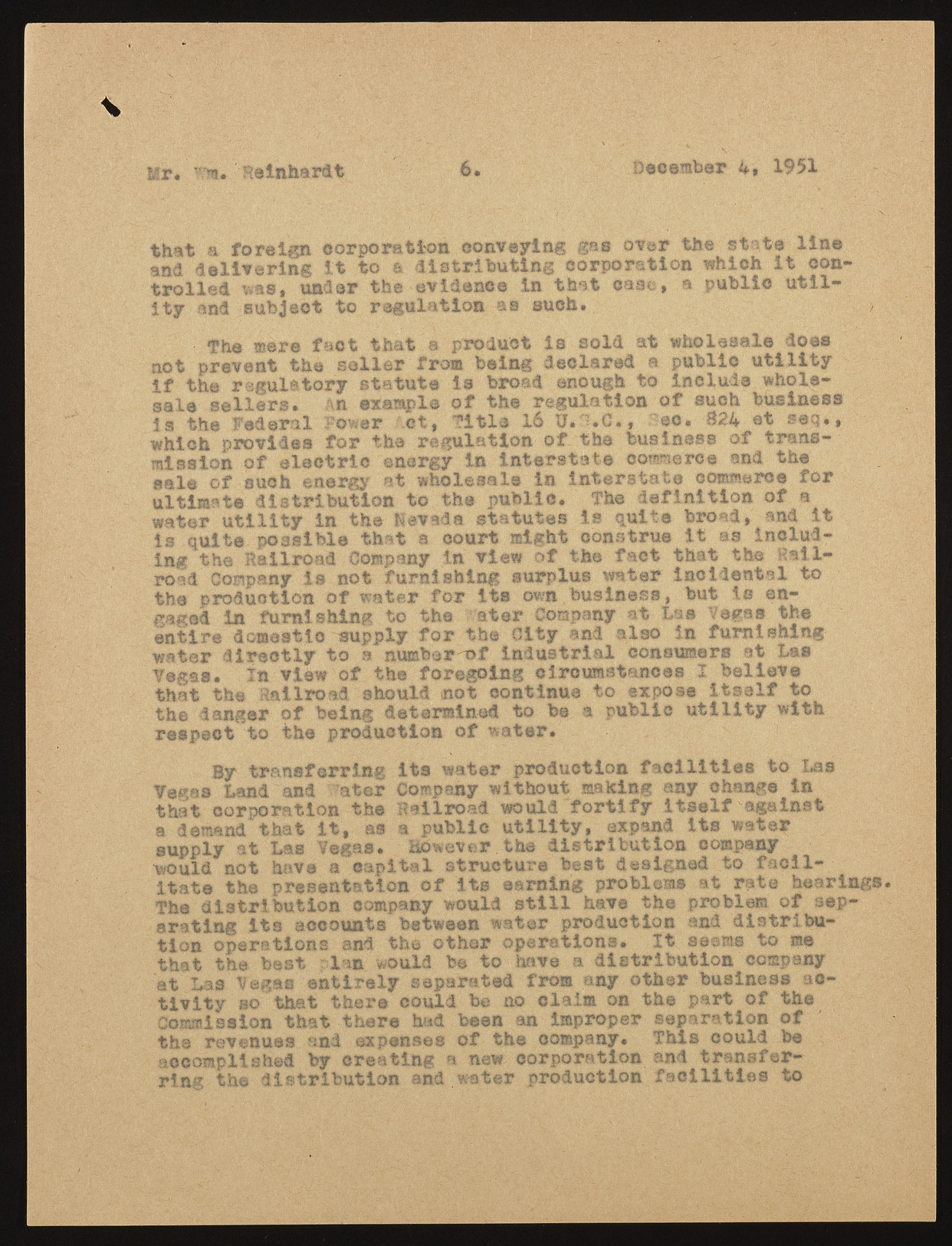Copyright & Fair-use Agreement
UNLV Special Collections provides copies of materials to facilitate private study, scholarship, or research. Material not in the public domain may be used according to fair use of copyrighted materials as defined by copyright law. Please cite us.
Please note that UNLV may not own the copyright to these materials and cannot provide permission to publish or distribute materials when UNLV is not the copyright holder. The user is solely responsible for determining the copyright status of materials and obtaining permission to use material from the copyright holder and for determining whether any permissions relating to any other rights are necessary for the intended use, and for obtaining all required permissions beyond that allowed by fair use.
Read more about our reproduction and use policy.
I agree.Information
Digital ID
Permalink
Details
More Info
Rights
Digital Provenance
Publisher
Transcription
Mr. tt| Reinhardt 6. December 4, 1951 that a foreign corporation conveying gas over the state line !J| delivering it to t distributing corporation which it controlled was, under the evidence In that case, a public utility and subject to regulation as Buch. > The mere fact that a product is sold at wholesale does not prevent the seller from being declared a public utility if the regulatory statute is broad enough to include wholesale sellers, hn example of the regulation of such business Is the Federal Fewer et, Title 16 U.3.C., 324 et seq., which provides for the regulation of the business of transmission o f electric energy In Interstate compares and the sale of such energy at wholesale in interstate commerce for ultimate distribution to the public. The definition of a water utility in the Nevada statutes Is quite broad, and it is quite possible that a court might construe it as including the Railroad Company In view of the fact that the Railroad Company is not furnishing surplus water incidental to the production of water for its own business, but is engaged In furnishing to the ater Company at las Vegas the entire domestic supply for the City and also in furnishing water directly to a number of industrial consumers at Las Vegae. in view of the foregoing circumstances I believe that the Railroad should not continue to expose itself to the danger of being determined to be a public utility with respect to the production of water. By transferring its water production facilities to Las Vagas Land and 7ater Company without malting any change in that corporation the Railroad would fortify itself against a demand that it, as a public utility, expand its water supply at Las Vegas, however the distribution company would not have a capital structure best designed to facilitate the presentation of its earning problems at rate hearings The distribution company would still have the problem of separating its accounts between water production and distribution operations and the other operations, it seems to me that the best -lan would be to have a distribution company at Las Vegas entirely separated fro® any other business activity so that there could be no claim on the part of the Commission that there had been an improper separation of the revenues and expenses of the company. This could toe accomplished by creating a new corporation and transferring tiae distribution and.water production facilities to

